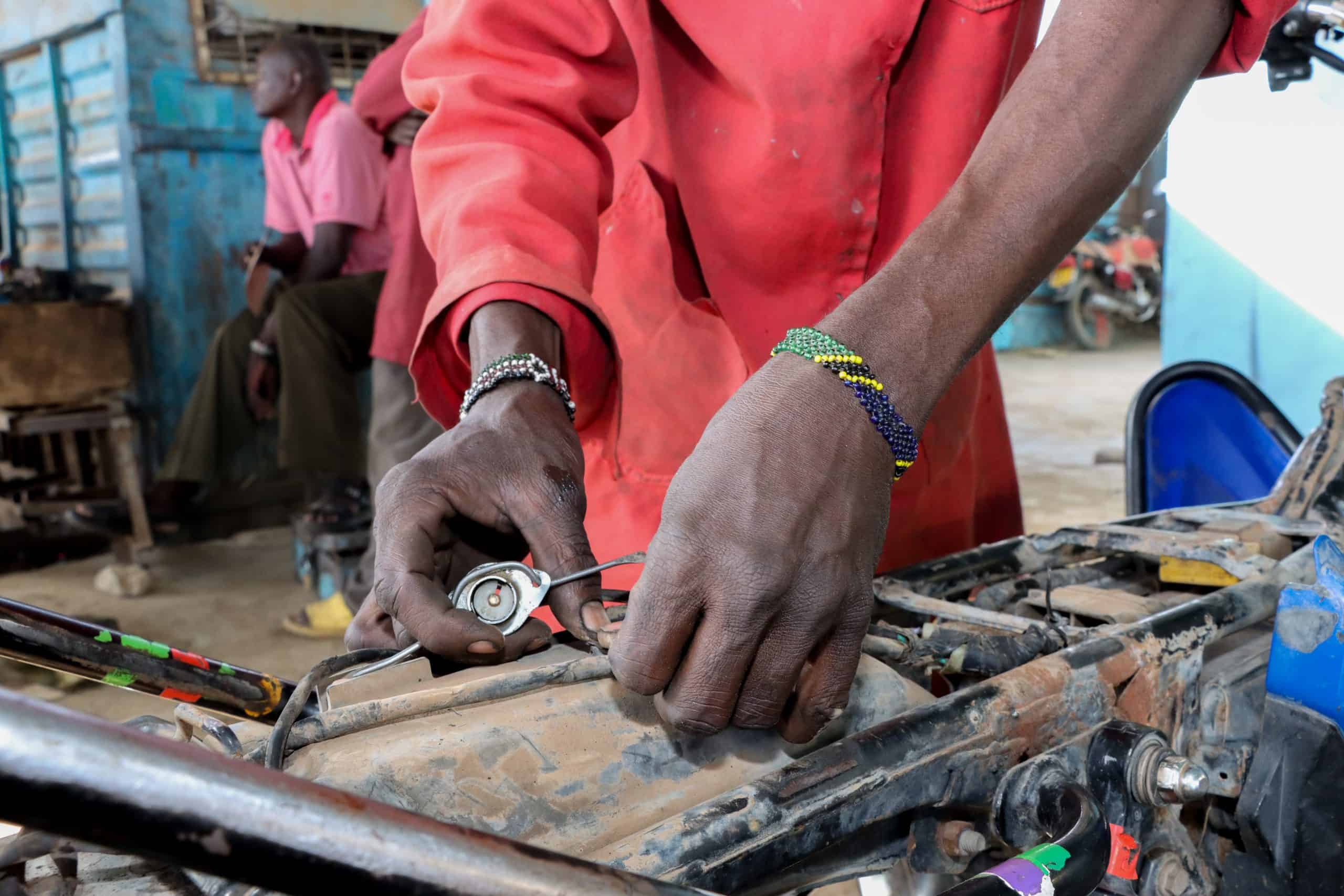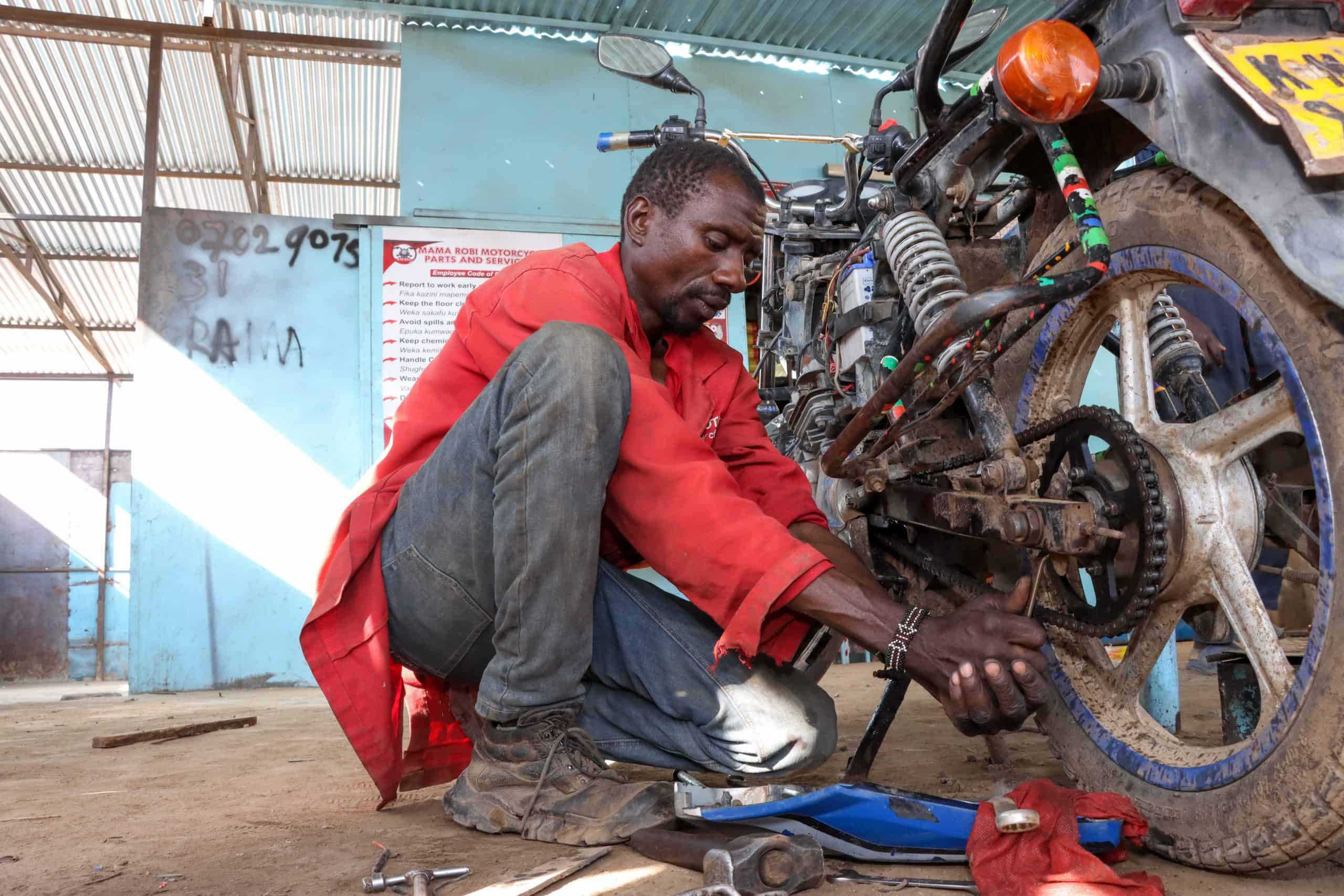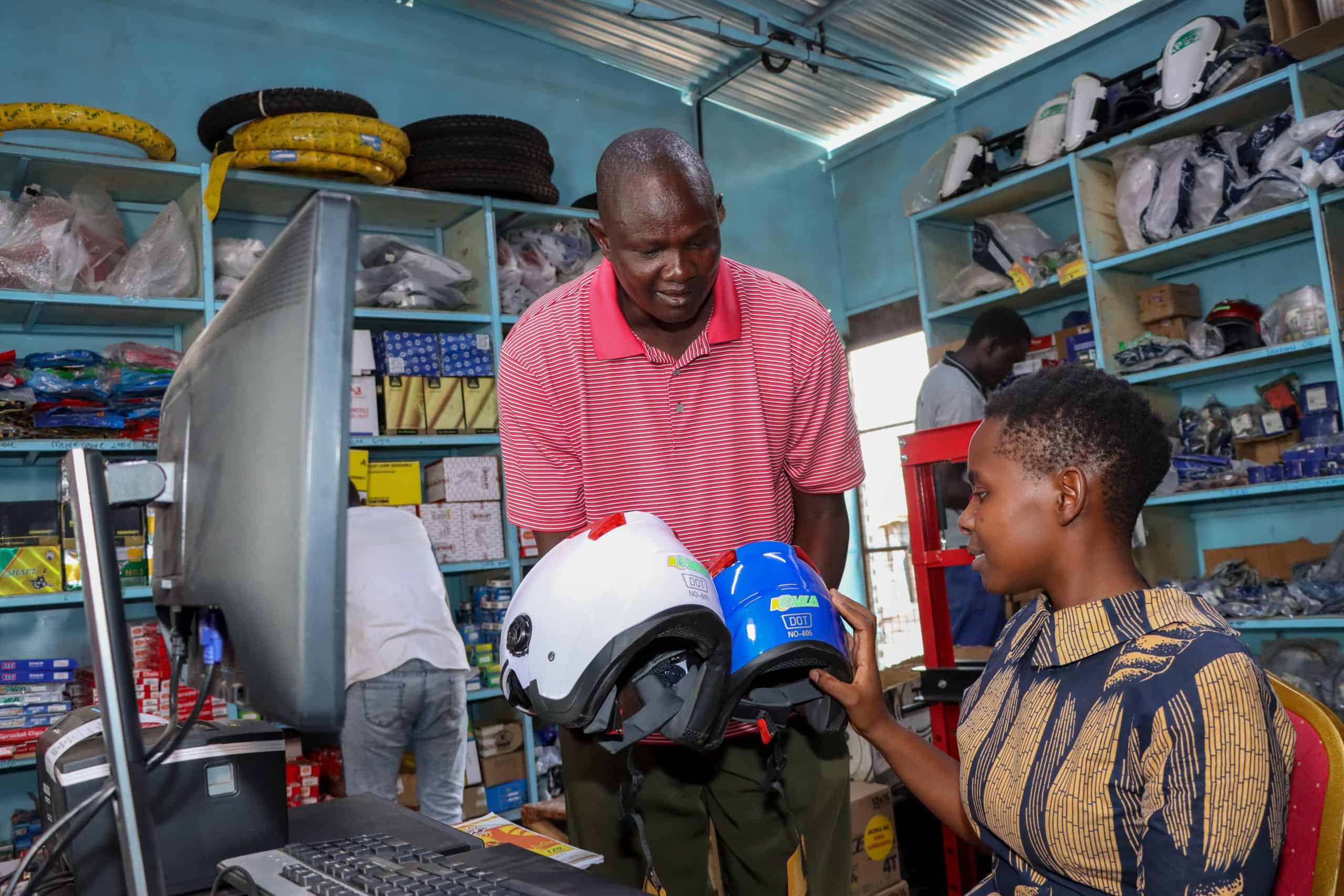The roar and hum of motorcycles can be heard as one approach Mama Robi Spares and Auto Garage in Kakuma town.
The garage is a beehive of activities. The rhythmic clang of wrenches, ratchets, and sockets as mechanics tighten or loosen bolts is constantly interrupted by the high-pitched screech of angle grinders or the buzzing of saws shaping parts.
At the shop, William Moru Pera stocks spare parts for all motorcycle models, from Honda to TVS, Boxers, and even sports motorbikes. Motorcycles are the popular means of transportation in Kakuma, given their flexibility and ability to navigate the rough terrain that defines roads in Turkana County. This has provided job opportunities for youths who use them to ferry passengers.
For William, many motorcycles in the town were an opportunity to open a spare parts business. He started with a makeshift stall, but with the support of Kakuma Kalobeyei Challenge Fund (KKCF), he moved into an expansive premise, making it a one-stop shop for all spare parts.

As an ethnic Turkana, William says that, like other members of the community, business was not his preferred form of livelihood. The influx of many tribes into the region has, however, encouraged many of them to try their hands at various businesses as they learn from the enterprising immigrants.
“I decided to venture into the spare parts business after noticing many motorcycles in the town, but mechanics had to travel to Lodwar to buy spare parts. I knew it would earn me good money if I brought the spares closer where they can readily get them,” says William.
William is earning big, especially with his apprenticeship business model. He trains youths to work alongside seasoned mechanics to repair motorcycles with spare parts from his shop. Whenever a client brings a bike for repair, William provides the spares to these mechanics on credit, and they pay later after completing the repairs.
At Mama Robi, various mechanical tools are also leased at agreed-upon costs. At the garage, William has mechanics from the refugee and host communities, many of whom started as apprentices.
“I am now well established in a spacious location where customers can easily identify the spares they need. Thanks to support from KKCF, mechanics who used to go to other towns for spares can now get everything here,” he says.
William did not qualify for the grant when he made the first application. But as he says, KKCF was kind enough to consider him for the accelerator program, where he was trained in business plan development, financial management, and bookkeeping, among other business management skills.

According to the KKCF Program Manager, Brian Murithi, the accelerator program was introduced after realizing that the quality of proposals submitted by entrepreneurs was substandard, disqualifying most of them.
“Instead of dismissing them, we trained them on business management, financial literacy, marketing and promotions, and bookkeeping. They were then given a chance to rewrite the concepts, which is how many succeeded in the second application,” says Brian.
Ramadhan Lumumba, a Congolese national living in Kakuma, works at the garage as a mechanic, providing him a livelihood and endearing him to the host community. “We do our best to bring customers here so that the shop owner can sell spares, and we earn some money from fixing the motorcycles, which has helped us meet our family needs,” he says, adding: “We have a very cordial working relationship here. We interact freely and perceive each other as brothers, not as a refugee or host community.”
One of the goals of the KKCF programme is to enhance the integration of the refugees and host communities for the sustainable development of the region. AECF’s Head of Agribusiness, Fred Kiio, says the program has helped minimize tension between the refugees and host communities since they have realized the need for cooperation for their businesses to thrive.
“The host community initially perceived the refugees as trouble, but over time, they have integrated. It was essential to bring all of them together to have a common vision and to understand what the program established to promote sustainable development in the area,” says Kiio.
